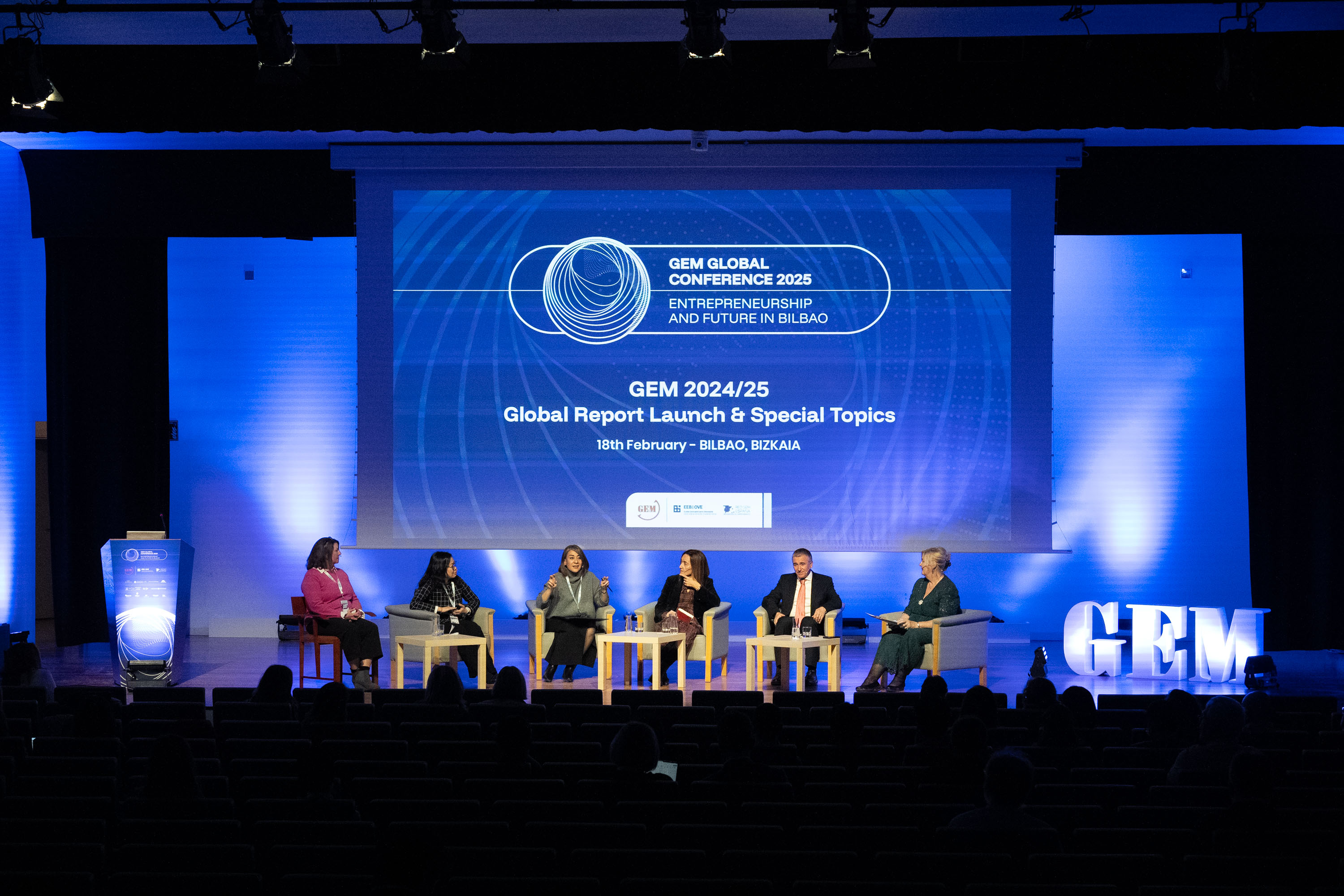By Mahsa Samsami
Entrepreneurship is everywhere. It drives new jobs, sparks innovation, and shapes communities. Yet when it comes to studying entrepreneurship, most of the attention has come from business schools and economists. Sociologists – those who study how people, institutions, and cultures interact – have mostly been on the sidelines.
That’s a missed opportunity. The Global Entrepreneurship Monitor (GEM), the world’s largest study of entrepreneurship, offers sociologists an incredible dataset to dig into big questions: How do crises reshape opportunities? Why do some regions foster thriving ecosystems while others lag? How do motives like “making a difference” or “carrying on the family tradition” compare with profit as drivers of entrepreneurship?
Entrepreneurship isn’t just about business. It’s about society. GEM is the tool that can help us understand that.
From startups to social roles
Most research using GEM has asked simple questions: Who wants to be an entrepreneur? What helps them get started? Useful, but limited.
Sociology can flip the lens. Think of “entrepreneur” as a social role, like teacher or doctor. Every society treats this role differently, sometimes as glamorous, sometimes risky, sometimes even frowned upon. GEM data allows us to track how people enter, progress, and eventually exit this role. Do women experience entrepreneurship differently than men? Does professionalisation – turning entrepreneurship into a recognised career path – play out the same way across cultures? This is where sociology can add nuance that raw economics can’t.
Institutions matter
We all know startups don’t happen in a vacuum. They grow or fail inside ecosystems shaped by policy, culture, and institutions. GEM’s National Expert Survey captures these conditions, but most research still looks at them one by one.
Sociology pushes us to connect the dots: family, religion, state, markets, and culture. Why does entrepreneurship flourish in some places where family ties are strong, while in others it thrives on individual ambition? How do different institutional “logics” compete, or cooperate, to shape opportunities?
Answering these questions helps explain not just how many entrepreneurs a country has, but what kind of entrepreneurs they become.
Here’s where GEM really shines. It covers more than 120 countries, allowing us to ask world-spanning questions about inequality, globalisation, and cultural imitation.
Why is entrepreneurship more common in poorer countries, but often out of necessity rather than opportunity? Why do some nations try to copy Silicon Valley, while others carve their own path? These are classic sociology questions about development, culture, and power.
And GEM gives us the numbers to explore them.
Five new frontiers for sociological research
GEM isn’t just repeating old questions. Its new data opens fresh avenues for exploration:
- Regions, not just nations – GEM now includes regional data, making it possible to compare entrepreneurship in cities, rural areas, and everything in between.
- Crises as natural experiments – From COVID-19 to the war in Ukraine, GEM lets us study how entrepreneurs adapt before, during, and after disruption.
- Motives beyond money – New questions capture whether entrepreneurs are driven by wealth, survival, family tradition, or making a difference.
- Digitalisation and AI – With data on how entrepreneurs adopt tech and artificial intelligence, GEM can fuel research on who wins and who’s left behind.
- Sustainability as a value – As green entrepreneurship grows, GEM tracks whether businesses align with shifting cultural norms around the environment.
Why this matters
Entrepreneurship shapes societies in ways far beyond economics. It affects family dynamics, community resilience, cultural values, and national identity. As crises accelerate and technologies like AI disrupt everything from jobs to education, understanding these dynamics is crucial.
GEM offers sociologists a front-row seat – and the data to back it up. But only if they step into the conversation.
For too long, entrepreneurship research has been dominated by economists and management scholars. It’s time for sociology to bring its lens on roles, institutions, inequality, and culture into the picture. GEM is more than a business dataset. It’s a mirror reflecting how societies change, adapt, and imagine the future. The question is: will sociologists look into it?
This article draws on insights from Mahsa Samsami and Kim Klyver, “The Global Entrepreneurship Monitor and Cross-National Research,” in the De Gruyter Handbook of Sociology of Innovation and Entrepreneurship, edited by Olav Sorenson and Patricia H. Thornton (Berlin, Boston: De Gruyter, 2025), pp. 195–214.
Mahsa Samsami is a Lecturer and Postdoctoral Research Associate at Chemnitz University of Technology, Germany; a Research Fellow at Stellenbosch University, South Africa; a Research Associate at the University of Agder, Norway; a member of the Global Entrepreneurship Monitor South Africa team and a part-time Research Associate for the Global Entrepreneurship Monitor.

